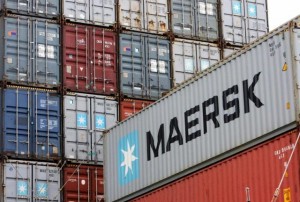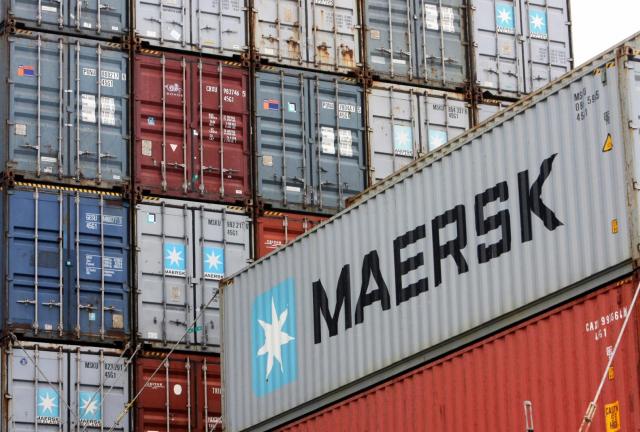
(AFP Photo)
By Mohamed Al-Atrush
Recent political events in Egypt have hit the country’s customs officials worst, negatively affecting the economy, international trade and transport, according to Ahmed Mostafa, Customs Official Captain and member of the Board of Directors for the International Trade Division.
Such events have affected customs offices, in addition to small and medium sized businesses, importers and traders, forcing some to withdraw from the market. Small businesses represent a large number of those dealt with by customs officials.
Mostafa stated that although the flow of transport and commerce had been affected by the imposition of a curfew, this did not have an effect on workflow inside Egyptian ports.
He added that recent events have not had an effect on the amount of imports and exports entering the country via the sea, but that waiting periods experienced by ships were extended as a result.
Increases in waiting periods for ships have subsequently led to increases in the overall cost of imports, as the amount of fees paid for “additional storage time” has increased.
Regarding the Fiata Congress soon to be held in Singapore in mid-October, Mostafa stated that he would bring up the issue of a new customs inspection system to be implemented in ports throughout the country. The new system was developed by the United States, which seeks its implementation and adoption by countries all over the world.
He stated that it would currently be impossible to implement a complete customs inspection in Egypt due to the limited number of personnel within the ports and shortcomings of the available technology. Attempting to implement such a system would lead to the overstocking of goods and freight inside customs facilities.
Mostafa added that customs officials have suffered over the last three years as a result of the fallout from the 25 January and 30 June revolutions and the subsequent security lapses. He called for procedures to be strengthened regarding transit commerce, which represents 30% of all cargo handled by customs officials.
He stated that the Egyptian Customs Authority’s decision to prevent the passage of transit goods en route to Libya by land, and limit their transport by sea, for the purpose of cutting back on smuggling has caused thousands of customs officials to be laid off, and has, in fact, caused smuggling to intensify.
Protectionist policies have helped fuel smuggling, as Egyptian importers have become unable to bear the cost of price increases and dumping fees, Mostafa said. He added that transit goods generated additional income for the state, and would benefit the national economy by helping to develop services offered in Egyptian ports for ships.
Mostafa stated that increasing the country’s transit shipping rates would help utilize currently unexploited areas of Egypt’s transport network used for distributing essential goods. Increasing such rates would help create additional work opportunities for shipping, freight and transport companies, in addition to customs officials.
He stated that the Customs Workers Union would not resort to stepping outside the law or avoiding dialogue for their demands to be met, despite calls being made by some customs officials to go on strike and cease work activities.
Mostafa called for the review of procedures regulating the flow of transit shipping to Libya and an increase in security along smuggling routes, in cooperation with Libyan authorities.
He stated that the Union hoped to continue cooperating with the Egyptian Customs Authority, create a joint committee to follow new developments in the sector and work to address difficulties faced by customs officials.
The decision to cease dealing with bank mandates aims to enforce tighter security at customs ports and aid in the determination of those legally responsible in the case that smuggling does occur. Bank mandates often serve as disclaimers of legal responsibility, while the power of attorney protects customs officials and state resources.
Mostafa stated that a memorandum had been raised to the Chairman of Stamps and Measures to exempt engineering goods and industrial equipment from stamps and measures fees.
Mohamed Shafiq, chairman of the General Organization for Import and Export Control, expressed his readiness to address those problems faced by customs officials that fall under his jurisdiction.
He stated that the training and education committee within the Alexandria Customs Officials Union had successfully put in place a comprehensive training program aimed at improving the efficiency of customs officials and implementing necessary reforms in the sector.
He stated that the program would be implemented through a series of training sessions aimed at developing the job skills of customs officials. In addition, the programme aims to educate workers regarding the laws, rules and regulations of the sector, particularly those related to the release of imported or exported goods, customs tariffs, and the classification of goods.




